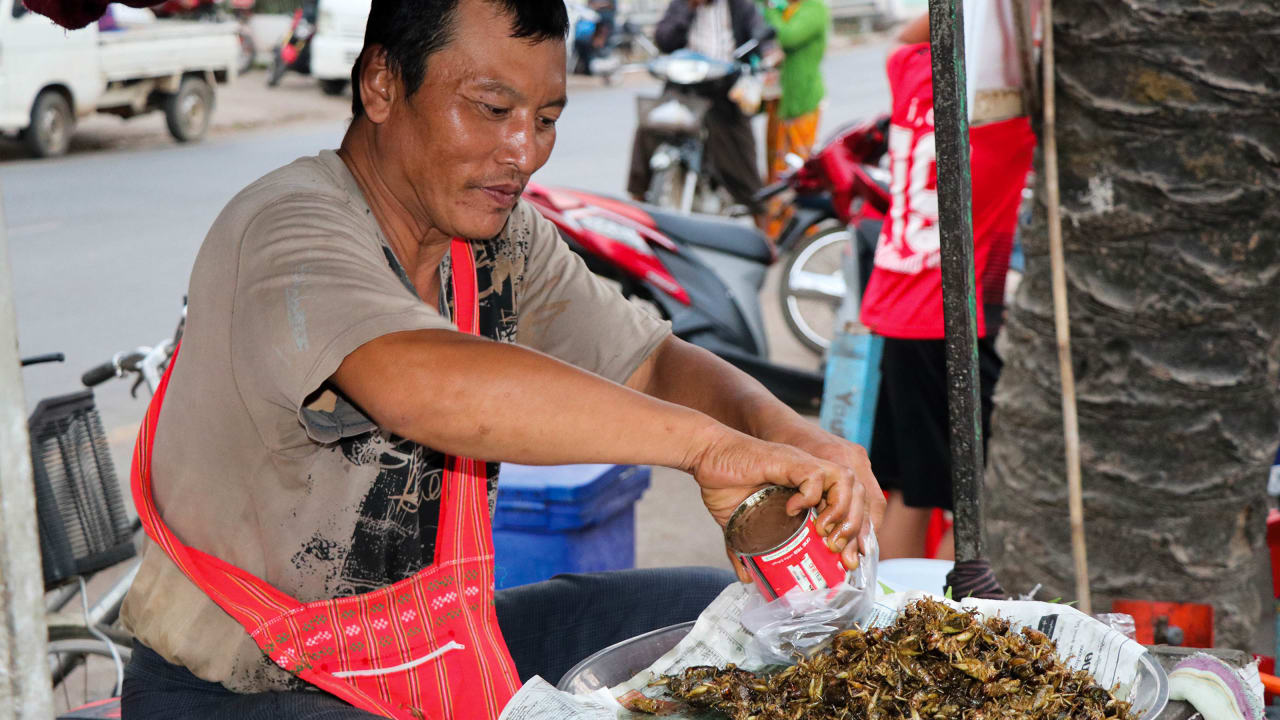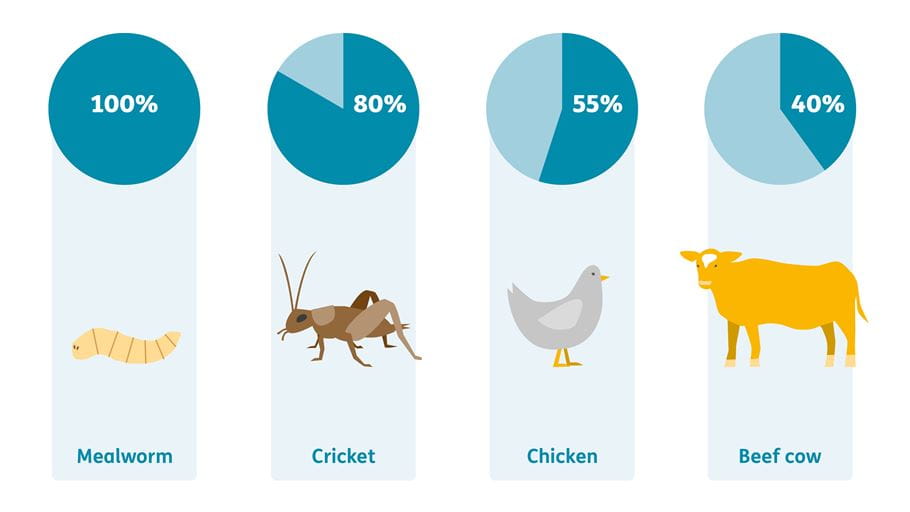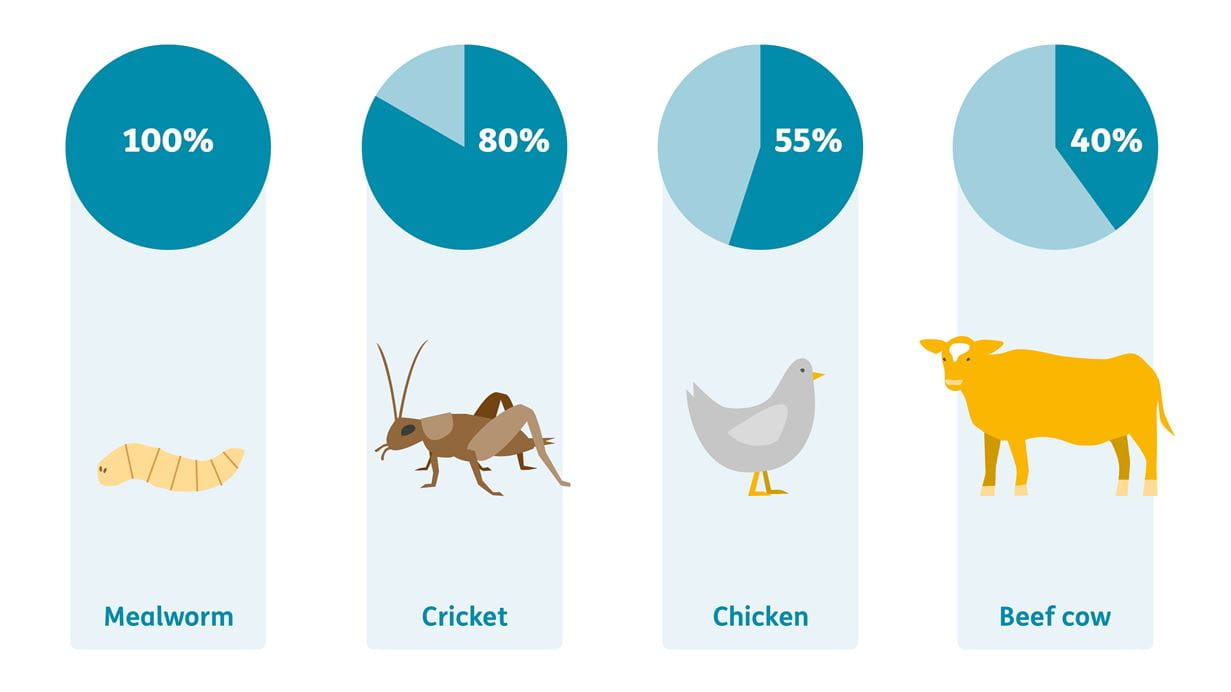Insects are eaten and enjoyed in many cultures across the world.
They are an important source of protein and provide significant livelihood opportunities for people in both rural and urban areas. Compared to many other sources of protein, such as cattle and pigs, their impact on the environment is minimal.
Nutritious
Insects are rich in protein, fibre, useful fats, vitamins and minerals. They can be eaten whole or they can be ground into a powder and incorporated into other foods.
Increasing attention is being given to the use of insects as a feed ingredient for livestock and fish. Several companies in different parts of the world are rearing insects such as black soldier fly for this purpose.
Low environmental impact
Population growth, urbanisation and rising incomes are increasing the global demand for food, especially protein from animals. However, intensive livestock production and over-grazing are significant contributors to land and water pollution, forest degradation and climate change.
The rearing and harvesting of insects offers a viable alternative.
- Insects need much less food and water than livestock to produce the same amount of useful protein. This is because they grow quickly and are good at converting food into bodyweight. In addition, almost all of the insect can be eaten compared to only 40 per cent of a cow and 55 per cent of a chicken or pig.
- Insects reproduce quickly and can be reared in a small space on agricultural and food waste.
- Insects produce much lower levels of damaging greenhouse gases than conventional livestock. For example, pigs produce up to 100 times more greenhouse gases per kilogram of bodyweight than mealworms.
In some places, natural increases in insect populations during the year can provide opportunities for large numbers to be harvested from the wild. This includes swarms of agricultural pests such as locusts. However, care must be taken not to eat locusts or other insects that might have been sprayed by insecticides as part of a pest-control programme.












